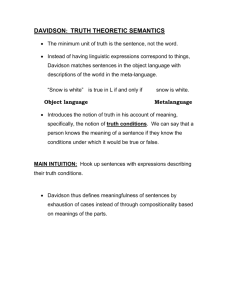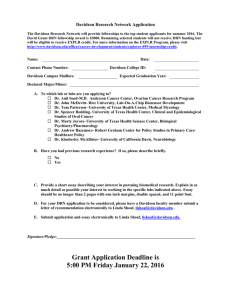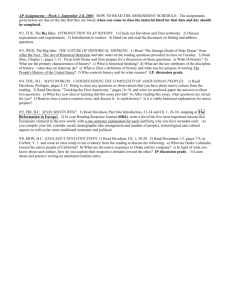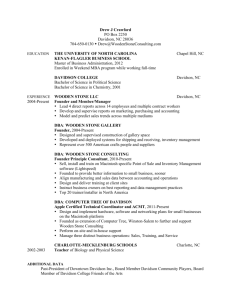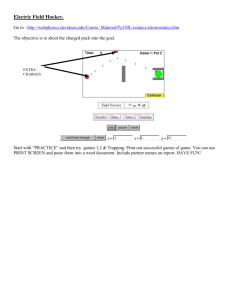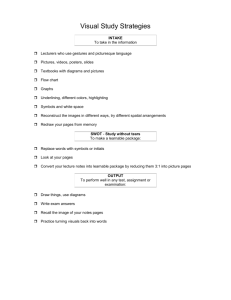24.251 – Intro to the Philosophy of Language
advertisement
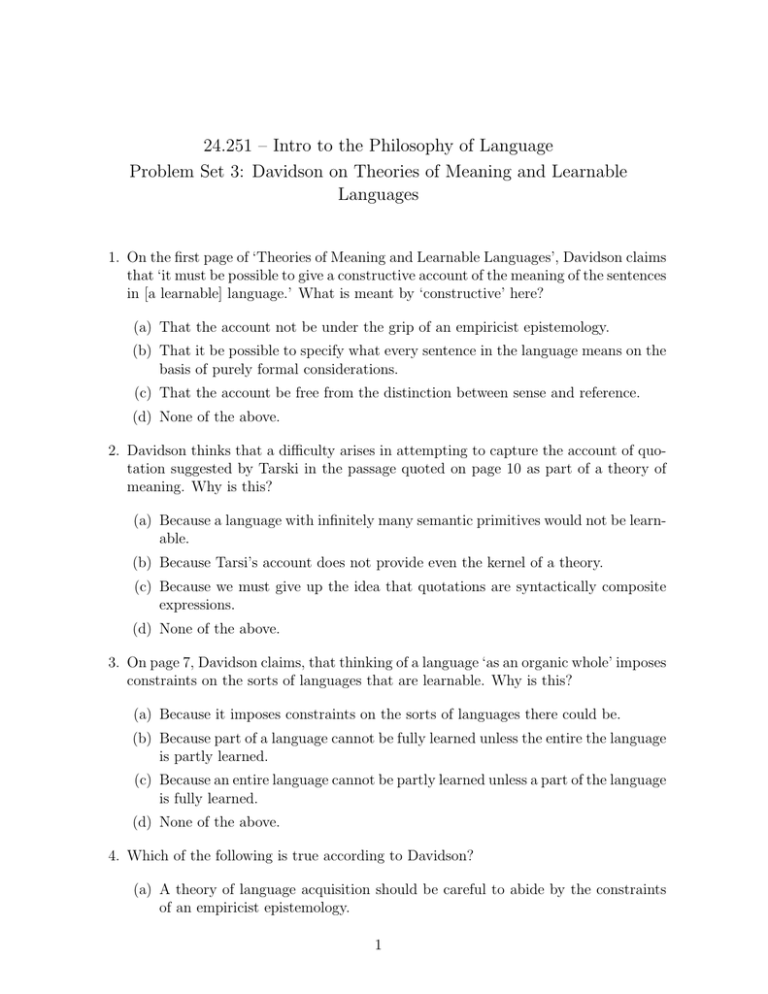
24.251 – Intro to the Philosophy of Language Problem Set 3: Davidson on Theories of Meaning and Learnable Languages 1. On the first page of ‘Theories of Meaning and Learnable Languages’, Davidson claims that ‘it must be possible to give a constructive account of the meaning of the sentences in [a learnable] language.’ What is meant by ‘constructive’ here? (a) That the account not be under the grip of an empiricist epistemology. (b) That it be possible to specify what every sentence in the language means on the basis of purely formal considerations. (c) That the account be free from the distinction between sense and reference. (d) None of the above. 2. Davidson thinks that a difficulty arises in attempting to capture the account of quo­ tation suggested by Tarski in the passage quoted on page 10 as part of a theory of meaning. Why is this? (a) Because a language with infinitely many semantic primitives would not be learn­ able. (b) Because Tarsi’s account does not provide even the kernel of a theory. (c) Because we must give up the idea that quotations are syntactically composite expressions. (d) None of the above. 3. On page 7, Davidson claims, that thinking of a language ‘as an organic whole’ imposes constraints on the sorts of languages that are learnable. Why is this? (a) Because it imposes constraints on the sorts of languages there could be. (b) Because part of a language cannot be fully learned unless the entire the language is partly learned. (c) Because an entire language cannot be partly learned unless a part of the language is fully learned. (d) None of the above. 4. Which of the following is true according to Davidson? (a) A theory of language acquisition should be careful to abide by the constraints of an empiricist epistemology. 1 (b) It must be possible to extract a truth definition from any adequate theory of meaning. (c) Unless a language could have infinitely many semantic primitives, it would be impossible to have languages containing infinitely many sentences. (d) None of the above. 2
